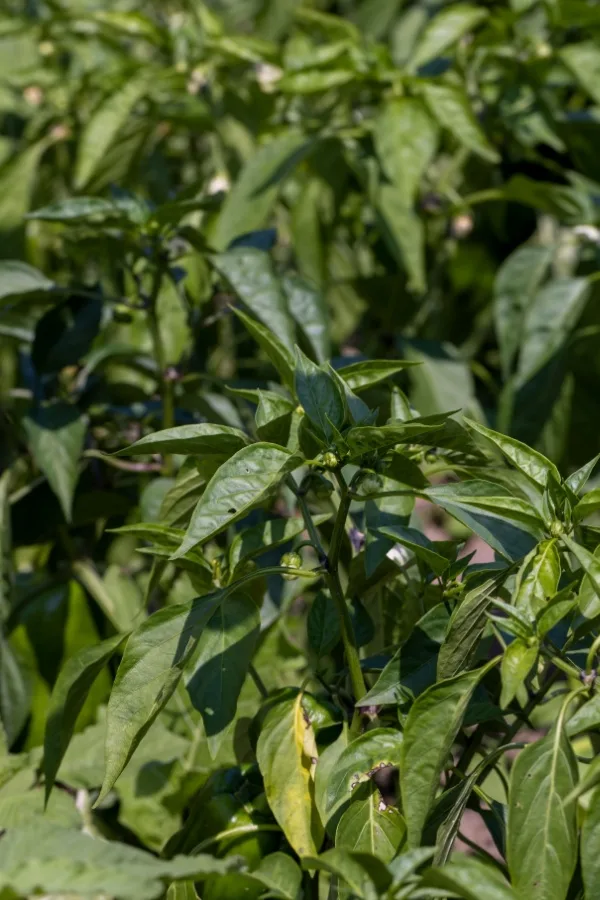Uncover the Best Fertilizers for Peppers: Necessary Nutrients for Flourishing Plants
Wiki Article
The Ultimate Overview to Fertilizing Peppers: Enhancing Development and Taste Normally
As pepper fanatics look for to cultivate robust plants producing tasty fruits, the duty of fertilizing ends up being paramount in attaining these goals. The trip to recognizing the complex balance of nutrients that peppers require for optimal growth and preference is a nuanced one. By checking out the benefits of all-natural plant foods, opening the tricks behind pepper plant nutrient needs, and diving into the realm of organic fertilizer choices, a globe of possibilities arises for enhancing the vigor and flavor account of these cherished plants. Stay tuned to reveal the vital practices and services that can boost your pepper-growing undertakings to brand-new elevations.Benefits of All-natural Plant Foods
Natural fertilizers use an array of benefits that add to the overall health and wellness and performance of pepper plants. By enriching the soil with natural matter, such as garden compost or manure, all-natural fertilizers improve its water retention ability and nutrient-holding capabilities, creating a more friendly environment for pepper plants to grow in.Additionally, natural plant foods support a energetic and diverse dirt microbiome, fostering valuable microbial activity that aids in nutrient recycling and uptake by the plants. This microbial activity can help reduce dangerous virus and conditions, lowering the requirement for chemical interventions. Furthermore, natural fertilizers advertise long-lasting soil wellness by keeping a well balanced community underground, which subsequently sustains the general wellness and strength of pepper plants over ground.
Recognizing Pepper Plant Nutrient Needs
Having actually developed the benefits of organic plant foods in boosting dirt health and advertising microbial task, the focus now changes to comprehending the particular nutrient requirements vital for ideal growth and taste in pepper plants.
Understanding the certain nutrient requirements of pepper plants is vital for achieving plentiful harvests with superb flavor. By giving the best equilibrium of nutrients through natural plant foods or soil modifications, farmers can guarantee healthy and balanced, strenuous plants that produce tasty peppers throughout the expanding season.
Organic Fertilizer Options for Peppers
In enhancing the growth and taste of pepper plants, picking the suitable natural plant foods is an important factor to consider. Organic plant foods offer a all-natural and lasting way to nourish pepper plants without introducing dangerous chemicals to the dirt and setting.One more efficient organic plant food for peppers is aged manure. Rich in nitrogen, potassium, and phosphorus, aged manure offers a balanced nutrient mix that sustains strenuous growth and abundant fruit manufacturing (best fertilizers for peppers). It is essential to make use of well-aged manure to protect against shedding the plants more helpful hints with excess ammonia
Fish emulsion is a fast-acting organic fertilizer that provides pepper plants with a quick boost of nutrients. Derived from fish waste, this fertilizer is high in nitrogen, making it particularly beneficial throughout the beginning of pepper plant growth. Fish emulsion is simple to apply and is easily taken in by the plants, advertising healthy foliage and strong root advancement.
When choosing a natural fertilizer for peppers, think about the details nutrient requirements of your plants and go with choices that line up with your gardening techniques and values.
Best Practices for Fertilizing Pepper Plants
Considering the value of selecting appropriate natural plant foods for pepper plants, carrying out finest methods for fertilizing is vital to ensure ideal development and taste growth. One of the key finest methods for feeding pepper plants is to perform a dirt test before using any type of plant foods. This test will certainly assist figure out the details nutrient needs of the soil and overview you in selecting the appropriate type and amount of plant food. It is also important to fertilize pepper plants at the best time, typically before planting and throughout key growth phases such as blooming and fruit growth.Furthermore, incorporating organic issue into the dirt with compost or mulching can aid boost dirt framework, water retention, and nutrient availability, advertising healthier pepper plants with enhanced taste accounts. By sticking to these finest practices, you can efficiently nurture your pepper plants and attain bountiful harvests with premium taste and top quality.
Troubleshooting Common Fertilizing Issues

pH imbalance is one more problem that can influence nutrient uptake in pepper plants. When the soil pH is too low or as well high, particular nutrients come to be not available to the plants. Routinely checking the dirt pH and making adjustments utilizing organic changes can assist keep a suitable pH degree for ideal plant development. Lastly, irregular fertilization practices can result in unequal development and my response fruit development. Establishing a normal fertilization schedule and adhering to advised application prices can assist prevent this issue and ensure healthy pepper plants throughout the growing period. look at here now
Final Thought
By understanding the nutrient demands of pepper plants and choosing natural fertilizer alternatives, garden enthusiasts can successfully advertise healthy and strenuous development. Adhering to ideal practices for fertilizing pepper plants and troubleshooting typical fertilization problems can aid make sure successful farming of peppers.By exploring the advantages of all-natural fertilizers, opening the keys behind pepper plant nutrient requires, and delving right into the realm of organic fertilizer choices, a globe of possibilities emerges for boosting the vitality and flavor account of these precious plants.Fish emulsion is a fast-acting organic fertilizer that provides pepper plants with a quick boost of nutrients. It is likewise important to feed pepper plants at the right time, typically before planting and throughout vital growth stages such as blooming and fruit growth.
By comprehending the nutrient requirements of pepper plants and picking natural fertilizer alternatives, garden enthusiasts can properly promote energetic and healthy and balanced growth. Adhering to best practices for fertilizing pepper plants and fixing typical fertilizing problems can help make sure effective farming of peppers.
Report this wiki page